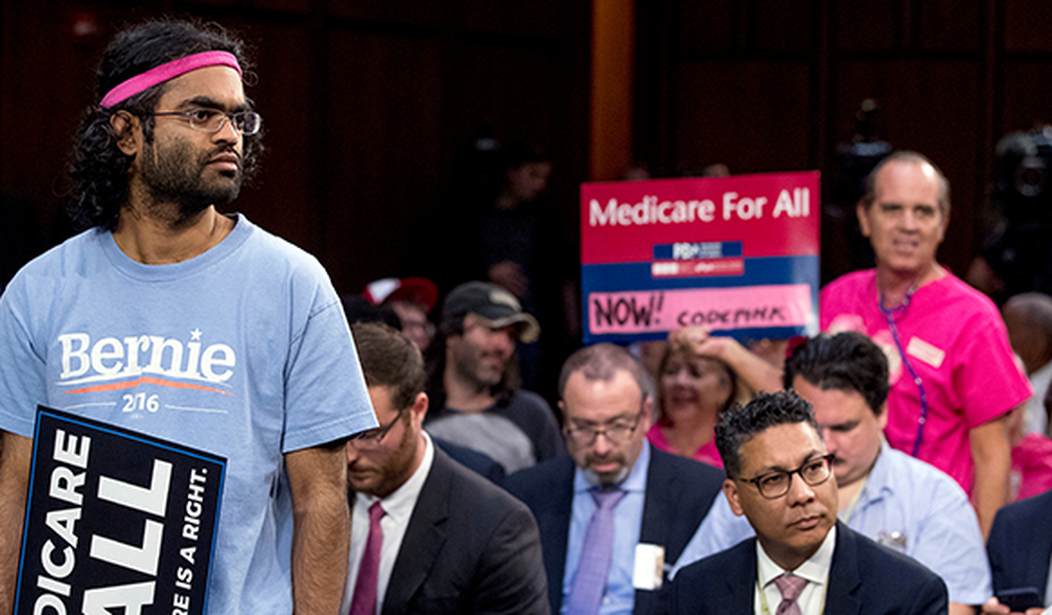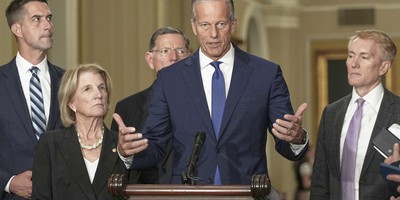This year’s Politicon (the annual non-partisan political convention which aims to bring “Republicans, Democrats, and people of all stripes together...”) culminated with a debate between Charlie Kirk, the founder and president of Turning Point USA, and Kyle Kulinski, the co-founder of Justice Democrats and host of The Kyle Kulinski Show.
Early in the debate, Kirk lauded the economy under President Trump by referencing the lowest unemployment rates in decades. Kulinski rejected this conclusion by claiming that Kirk was using the wrong metric, and argued instead in favor of analyzing the economy using the U6 unemployment rate, which includes workers who are on part-time employment for economic reasons.
Setting aside the specific debate regarding the economy under President Trump, Kyle Kulinski inadvertently uncovered a fundamental issue with our current political discourse - the failure to agree upon metrics of success when judging the success of policies or proposals. Without such an agreement, neither Charlie Kirk nor Kyle Kulinski’s economic arguments gained ground, making it clear that the topic of debate was not the strength of the economy under Trump, but how “strength” should be measured. How can we ever reach a reasonable and objective conclusion if we fail to agree upon the same hierarchy of metrics with which to measure success?
Elsewhere, the failure to vocally advocate for the application of valid metrics of success are enabling the American Left in their plot to drag voters down the path to inevitable policy failure. No area of political debate epitomizes this issue more clearly than the effort to usher in “Medicare for All.” Elizabeth Warren argued in favor of a complete overhaul of the American medical system by claiming that it is “the only plan that gives everyone in America full coverage, with the freedom to see any doctor, with no premiums, copays, and deductibles - so getting sick doesn’t mean you go broke.” In response to CNN reporting that “400,000 more children are uninsured since Trump took office,” Bernie Sanders responded, “Medicare for All now.”
Recommended
For Warren, Sanders, and other supporters of “Medicare for All,” it is clear that their metric for success is coverage. While many opponents of “Medicare for All” are understandably distracted by the vast number of monetary counter-arguments, by failing to reject this false metric of success they are in danger of appearing to accept the Left’s premise that coverage should be our ultimate objective.
When judging the provider of any service, should “accessibility” ever be accepted as the lone identifier of quality? Nightclubs which have no entry fee, and yet have motionless lines around the block, are not seen as an entertainment venue for those at the back of the line. The measurement of success for these customers involves far more variables than accessibility alone, and the same argument applies when it comes to healthcare. As the American Left extol the virtues of “Medicare for All,” they consistently and intentionally ignore other equally (or more important) measurements of success such as quality of care, health outcomes, and efficiency of service.
The reason they fail to mention other measurements is that accessibility, in principle, is trivial to deliver. Theoretically, all it takes to technically “guarantee” a service is the flick of a legislator’s pen. For example, South Africa guarantees healthcare as a human right in its constitution. However, providing an accessible, high-quality, and realistically-affordable plan is dramatically non-trivial, which is why no Democratic candidate would choose to travel to South Africa from the United States to receive medical care.
It is more than reasonable to argue that there is a vast array of problems within the American medical system, and it is equally reasonable to argue that government may have a role to play regarding any iterative and specific improvements. However, the stakes are simply too great to allow others to accept the Democrats’ insufficient premise that coverage alone is a valid measurement of success for “Medicare for All.” After all, the Left’s objective - universal coverage - will be nothing more than a hollow and useless legislative gesture for the “theoretically covered” patients who die while waiting for their “theoretically accessible” care.

























Join the conversation as a VIP Member